People take Spike Lee for granted. Don’t get me wrong — the cult of Lee remains ever-present in film nerd circles — but people seem to assume that there will always be another Spike Lee joint, somehow disregarding the fact that one of the definitive voices ever produced by the American cinema has been effectively marginalized by the monetary machinations of the Hollywood system for years. Consider that, of the 20-plus narrative features Lee has directed over more than 30 years in the industry, only three were in the last decade — all of which were incredibly difficult to finance and were received more or less tepidly by audiences — while Woody Allen helmed 10 films that saw theatrical releases during that same span. Let that sink in for a minute.
It speaks volumes that Lee’s best and most cohesive film in years, BlackKlansman, was made possible by the producorial efforts of Jordan Peele and Jason Blum, the most visible stalwarts a resurgent middle-class of low-budget films that harken back to the cinematic ecosystem that facilitated Lee’s rise to prominence over three decades ago. It’s also worth noting that contemporary American culture has caught up to Lee’s incendiary racial rhetoric, making BlackKlansman his most timely and, somewhat counterintuitively, most accessible film to date. Obviously, Lee has dealt with topical material in the past, from Do the Right Thing’s prescient depiction of police violence to Chi-Raq’s transposition of Aristophane’s morality play about the Peloponnesian war with modern Chicago’s homicide crisis as proxy, but the timing of his latest film bears far more immediacy than the filmmaker’s earlier work. BlackKklansman closes with documentary footage of 2017’s white supremacist march in Charlottesville, Va. — and as I screened the film on the anniversary of that national tragedy, I couldn’t avoid the thought that Lee has never been more synchronically aligned with the cultural zeitgeist.
Context aside, the film itself strikes a remarkable balance of comedy and drama, recounting the true story (as Lee’s opening titles put it, “Some fo’ real, fo’ real shit”) of black undercover detective Ron Stallworth (John David Washington), who infiltrated the ranks of the Ku Klux Klan in late ’70s Colorado Springs. It’s perhaps unfair to mention that Washington is the scion of longtime Lee collaborator Denzell Washington, as the younger Washington’s portrayal of Stallworth carries an altogether different quality, a restrained swagger that contrasts with the more bombastic style of his famous father.
Adapted from Stallworth’s memoir by Lee, David Rabinowitz, Charlie Wachtel and Kevin Willmott, BlackKklansman can easily be placed among Lee’s most incisively satirical scripts. It’s also among the best suited to his stylistic flourishes, in a way that more commercially oriented films like Inside Man or Summer of Sam could never allow. Lee employs split screens, dolly shots, jump cuts — a host of borrowed quirks that have collectively become definitive of his aesthetic signature — to evoke a deep emotional subtext. He juxtaposes the film’s comedic commentary with pointed inclusions of footage from Gone With the Wind and Griffith’s Birth of a Nation — in effect, he’s pulling out all the stops, leaning heavily on his film school influences to craft something as impactful as it is entertaining. While some gags directly alluding to Trump’s presidency may seem a bit on the nose, they don’t feel remotely out of place in Lee’s narrative and land legitimate laughs across the board. A consummate director of actors, Lee coaxes exceptional performances out of Washington, Adam Driver as Stallworth’s white (albeit Jewish) frontman and Topher Grace as a particularly weaselly David Duke, all of whom capture the story’s tone perfectly without descending into parody.
If BlackKlansman falls just shy of perfection, it does so honestly. The climax feels forced and the denouement is a bit disappointing by dint of narrative necessity, as Stallworth’s work was ultimately unable to fully unseat Duke or the Klan from positions of power. A moving monologue from the great Harry Belafonte establishes BlackKlansman’s core concepts succinctly and affectively, rendering the abrupt cut to the Charlottesville footage somewhat redundant. And yet that cut is every inch a Lee move, underscoring his ideas with an urgency engineered to jar the audience out of complacency. Lee’s acerbic invective has not been dulled by age, and it is unfortunately more necessary now than ever. The revolution may not be televised, but it will undoubtedly be a Spike Lee joint. Rated R for language throughout, including racial epithets, and for disturbing/violent material and some sexual references.
Now Playing at Carolina Cinemark, Fine Arts Theatre.



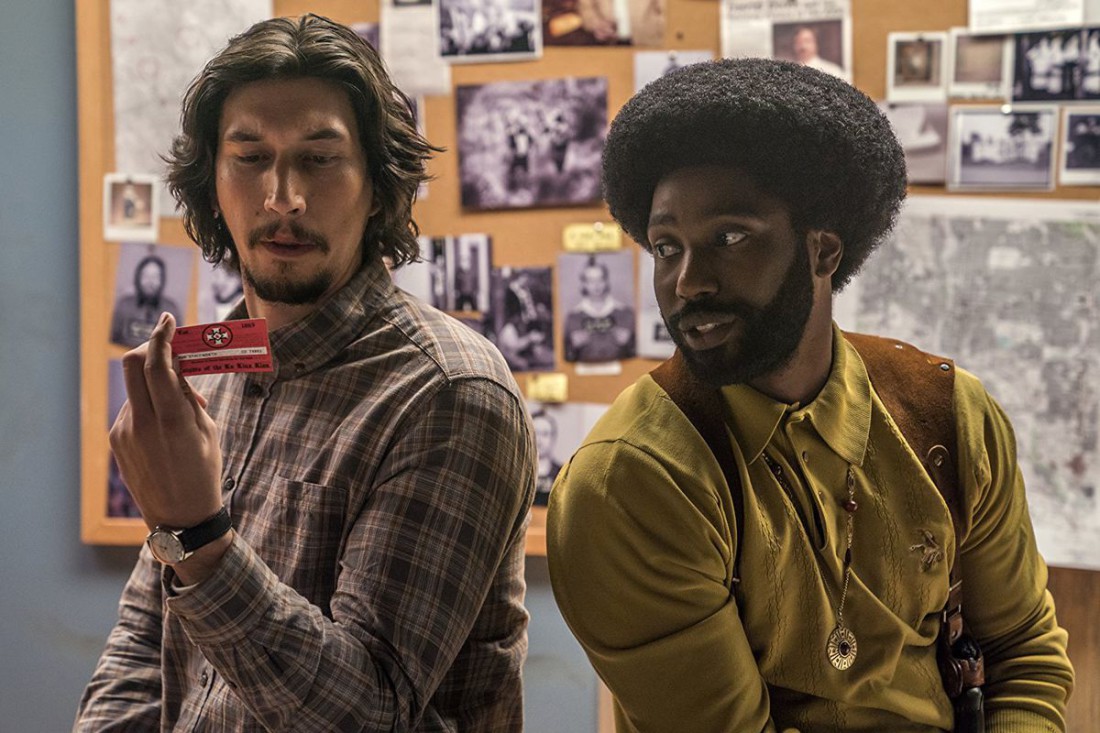
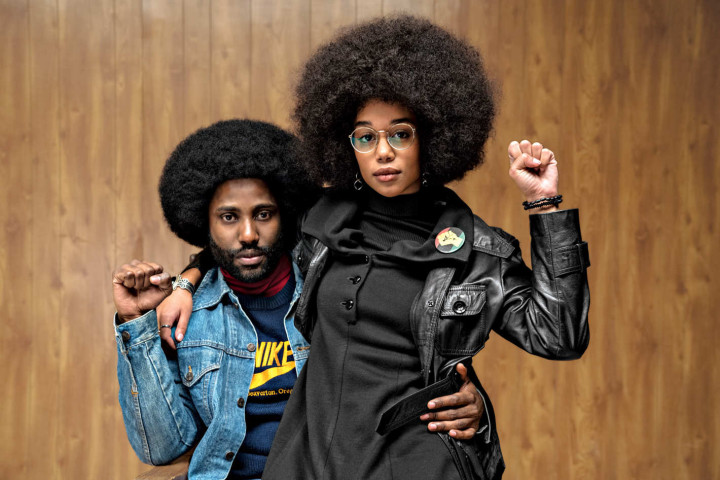
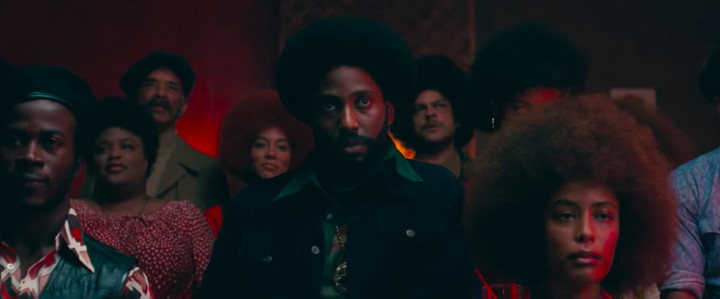
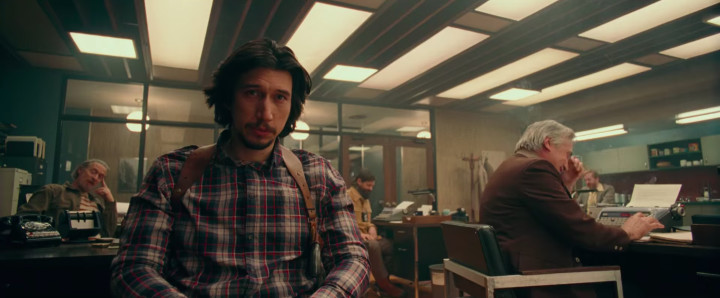
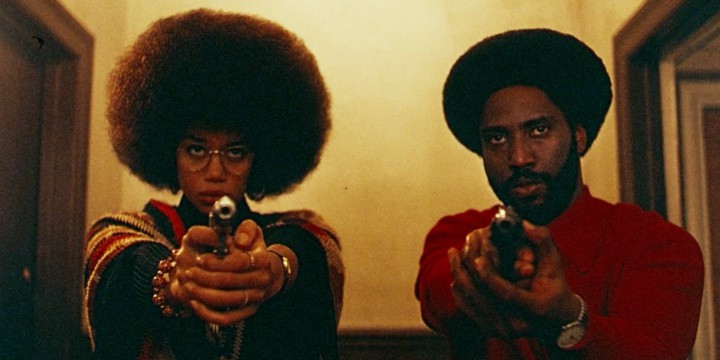
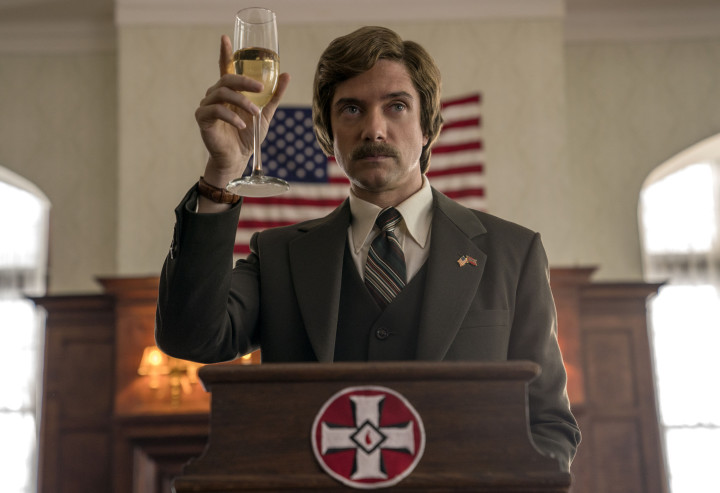
Before you comment
The comments section is here to provide a platform for civil dialogue on the issues we face together as a local community. Xpress is committed to offering this platform for all voices, but when the tone of the discussion gets nasty or strays off topic, we believe many people choose not to participate. Xpress editors are determined to moderate comments to ensure a constructive interchange is maintained. All comments judged not to be in keeping with the spirit of civil discourse will be removed and repeat violators will be banned. See here for our terms of service. Thank you for being part of this effort to promote respectful discussion.